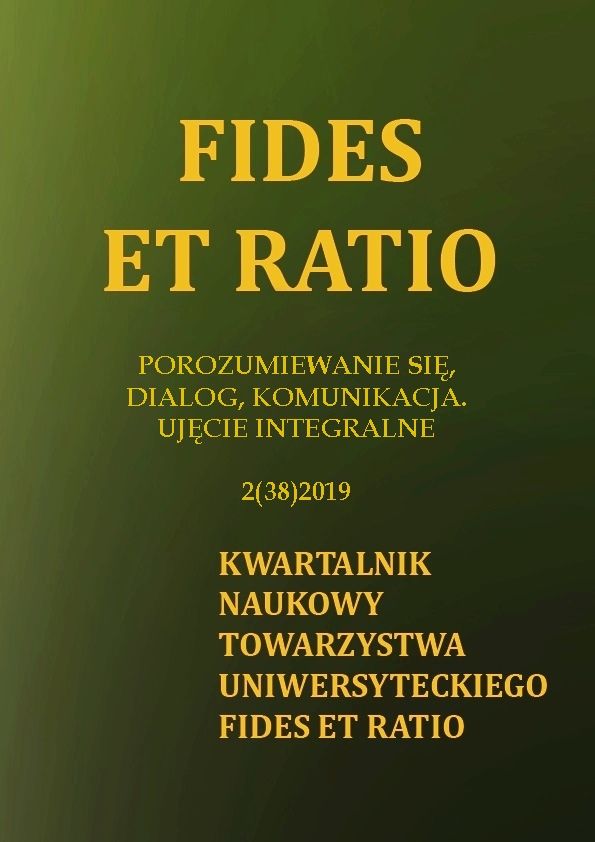Abstrakt
Celem artykułu jest przedstawienie koncepcji komunikacji w firmach rodzinnych pomiędzy członkami rodziny. Dynamika relacji pomiędzy liderem a osobą współpracującą jest poddana eksploracji w kontekście inteligencji emocjonalnej lidera oraz stylu przywództwa. Wyniki elaboracji podkreślają istotę i znaczenie przywództwa przedsiębiorczego w firmach rodzinnych. Artykuł przedstawia teoretyczne założenia i powiązania między czynnikami warunkującymi komunikację w charakterystycznym środowisku organizacyjnym. Wiodącą ideą jest pogłębienie rozumienia skutecznej komunikacji pomiędzy członkami rodziny, którzy wspólnie prowadzą działalność gospodarczą.
Bibliografia
Barnett, T., & Kellermanns, F. W. (2006), Are we family and are we treated as family? Nonfamily employees’ perceptions of justice in the family firm, Entrepreneurship Theory and Practice, 30(6), 837-854.
Bass, B. M. (1985), Leadership and performance beyond expectations. New York: Collier Macmillan.
Brundin, E., Melin, L., & Nordqvist, M. (2007), Keep the flow going: The strategic dialogue as a key to transgenerational entrepreneurial behavior, Presented at the third workshop on Family Firms Management Research (EIASM), Sweden.
Carsrud, A. L. (2006), Commentary:“Are we family and are we treated as family? Nonfamily employees’ perceptions of justice in the family firm”: It all depends on perceptions of family, fairness, equity, and justice, Entrepreneurship Theory and Practice, 30(6), pp.855-860.
Cogliser, C. C., & Brigham, K. H. (2004), The intersection of leadership and entrepreneurship: Mutual lessons to be learned, The Leadership Quarterly, 15(6), pp. 771-799.
Ciarrochi, J., Crittenden, N. and Hynes, K. (2005), Can men do better if they try harder: sex and motivational effects on emotional awareness, Cognition and Emotion, 19, pp. 133-141.
Ensley, M. D., & Pearson, A. W. (2005), An exploratory comparison of the behavioral dynamics of top management teams in family and nonfamily new ventures: Cohesion, conflict, potency, and consensus, Entrepreneurship theory and practice, 29(3), pp. 267-284.
Fernald, L. W., Solomon, G. T., & Tarabishy, A. (2005), A new paradigm: Entrepreneurial leadership, Southern business review, 30(2), 1-10.
Gaglio, C. M. (2004), The role of mental simulations and counterfactual thinking in the opportunity identification process, Entrepreneurship Theory and Practice, 28(6), pp. 533-552.
George, J. M. (2000), Emotions and leadership: The role of emotional intelligence. Human relations, 53(8), 1027-1055.
Goleman, D., Boyatzis, R. E., & McKee, A. (2013), Primal leadership: Unleashing the power of emotional intelligence, Harvard Business Press.
Goleman, D., & Boyatzis, R. (2017), Emotional intelligence has 12 elements. Which do you need to work on, Harvard Business Review, 84(2), 1-5.
Hill, E. J. (2005), Work-family facilitation and conflict, working fathers and mothers, work-family stressors and support, Journal of Family issues, 26(6), 793-819.
Hoy, F., & Verser, T. G. (1994), Emerging business, emerging field: Entrepreneurship and the family firm, Entrepreneurship theory and practice, 19(1), 9-23.
Khalili, A. (2017), Transformational leadership and organizational citizenship behavior: The moderating role of emotional intelligence, Leadership & Organization Development Journal,38(7), pp.1004-1015.
Koerner, A.F., & Fitzpatrick, M.A. (2002), Toward theory of family communication, Communication Theory, 12, 70–91.
Koiranen, M. (2003). Understanding the contesting ideologies of family business: Challenge for leadership and professional services. Family Business Review, 16(4), 241-250.
Leban, W., Zulauf, C. (2004), Linking emotional intelligence abilities and transformational leadership styles, Leadership & Organization Development Journal, 25(7), pp. 554-564.
Palmer, B., Walls, M., Burgess, Z. and Stough. C. (2001), Emotional intelligence and effective leadership, Leadership & Organization Development Journal, 22(1), pp. 5-10.
Rhee, K. S., & White, R. J. (2007), The emotional intelligence of entrepreneurs. Journal of Small Business & Entrepreneurship, 20(4), pp. 409-425.
LaRossa, R., & Reitzes, D. (2004), Symbolic interactionalism and family studies. In P .Boss, W. Doherty, R. LaRossa, W. Schumm, & S. Steinmetz (Eds.), Source book of family theories and methods: A conceptual approach (pp.135–162). New York: Springer.
McGrath, R. G., Mac Grath, R. G., & MacMillan, I. C. (2000), The entrepreneurial mindset: Strategies for continuously creating opportunity in an age of uncertainty (Vol. 284), Harvard Business Press.
Mikolajczak, M., Menil, C., Luminet, O. (2007), Explaining the protective effect of trait emotional intelligence regarding occupational stress: Exploration of emotional labour processes, Journal of Research in Personality 41(3), pp.1107-1117.
Pope John Paul II, (18.02.1982). Speech: Address Of His Holiness John Paul II To The Poor People Of The District Of Tondo. Manila.
[retrieved from: https://w2.vatican.va/content/john-paulii/en/speeches/1981/february/documents/hf_jp-ii_spe_19810218_manila-poveri-tondo.html].
Randøy, T., & Goel, S. (2003), Ownership structure, founder leadership, and performance in Norwegian SMEs: implications for financing entrepreneurial opportunities, Journal of business venturing, 18(5), 619-637.
Renko, M., Kroeck, K. G., & Bullough, A. (2012), Expectancy theory and nascent entrepreneurship, Small Business Economics, 39(3), 667-684.
Saklofske, D. H., Austin, E. J., & Minski, P. S. (2003), Factor structure and validity of a trait emotional intelligence measure, Personality and Individual differences, 34(4).
Segrin, C., & Flora, J. (2005), Family communication, Mahwah, NJ: Erlbaum
Seligman, M. E. (2003), Fundamental assumptions, Psychologist, 16(3), 126.
Shane, S., & Venkataraman, S. (2000), The promise of entrepreneurship as a field of research, Academy of management review, 25(1), 217-226.
Sirmon, D. G., & Hitt, M. A. (2003), Managing resources: Linking unique resources, management, and wealth creation in family firms, Entrepreneurship theory and practice, 27(4), pp. 339-358.
Smith, K., Freeman, P., & Zabriskie, R. (2009), An examination of family communication within the core and balance model of family leisure functioning, Family Relations, 58, pp. 79–90
Sorenson, R. L. (2000), The contribution of leadership style and practices to family and business success, Family Business Review, 13(3), 183-200.
Thornberry, N. (2006), Lead like an entrepreneur, McGraw Hill Professional.
Williams, R. O. (1992), Successful ownership in business families, Family Business Review, 5(2), pp. 161-172.
Vangelisti, A. L. (2004), Handbook of family communication, NJ: Erlbaum
Yukl, G. (2008), How leaders influence organizational effectiveness, The leadership quarterly, 19(6), pp. 708-722.
Zahra, S. A., & Sharma, P. (2004), Family business research: A strategic reflection, Family Business Review, 17(4), pp. 331-346.
